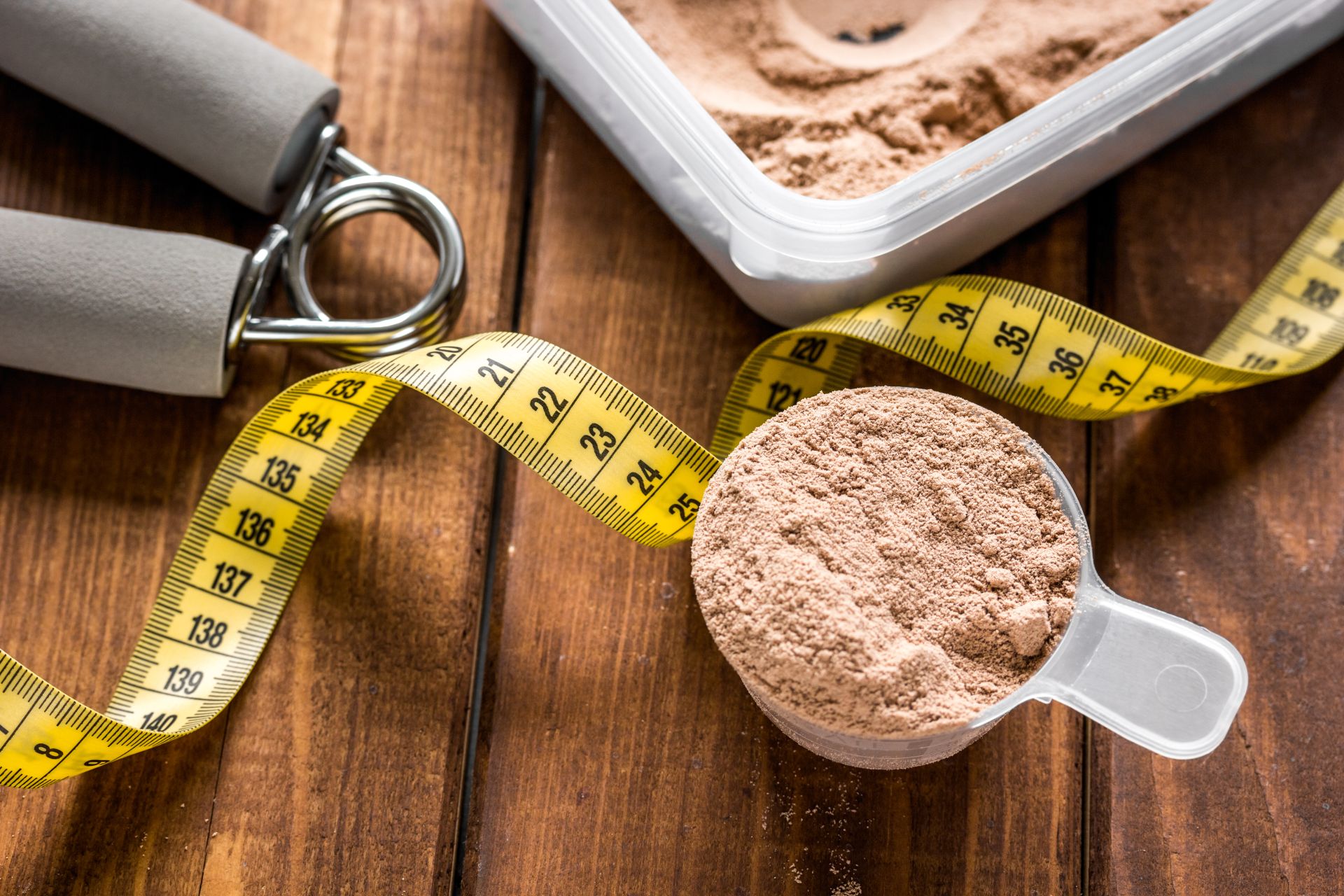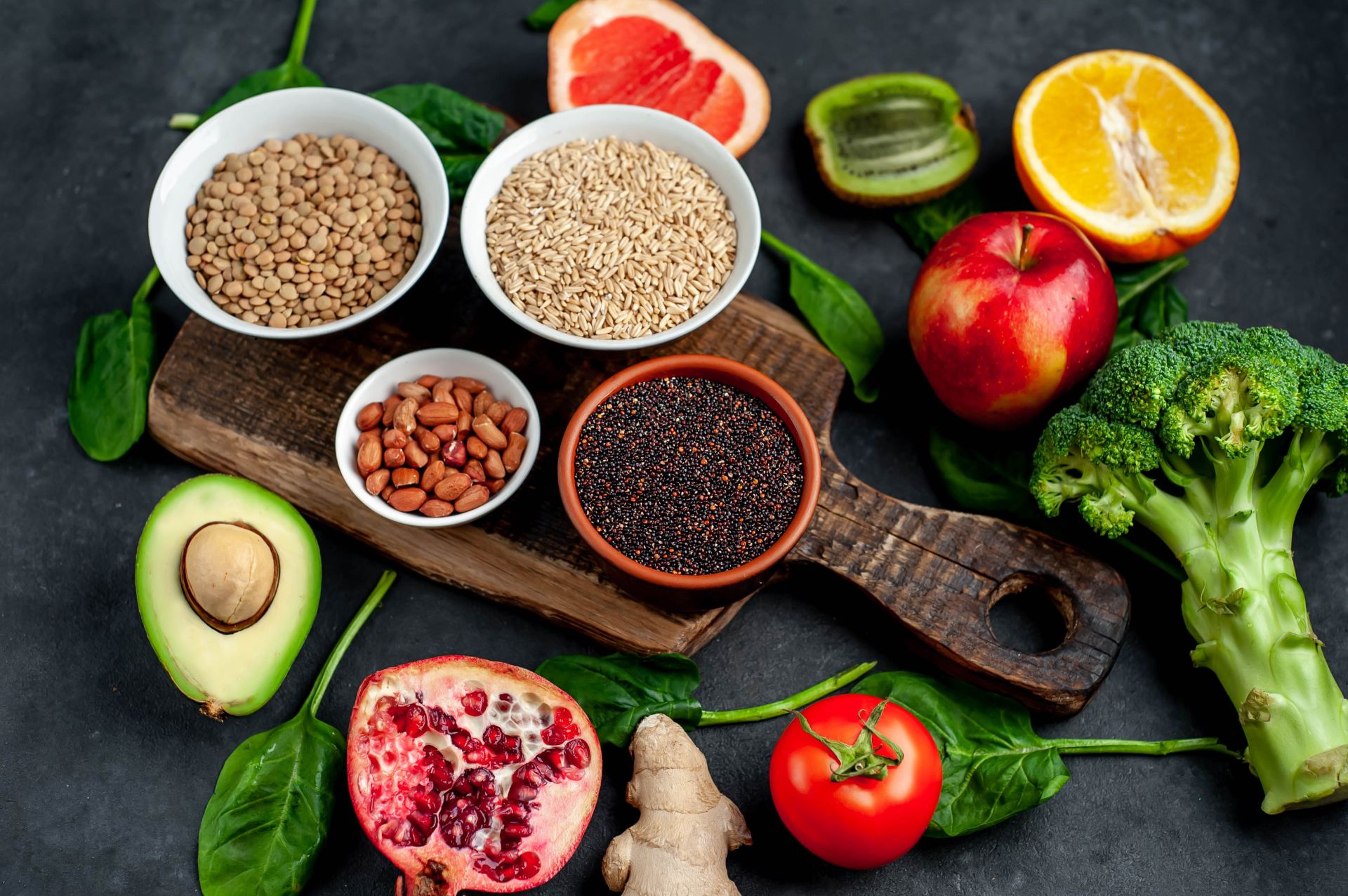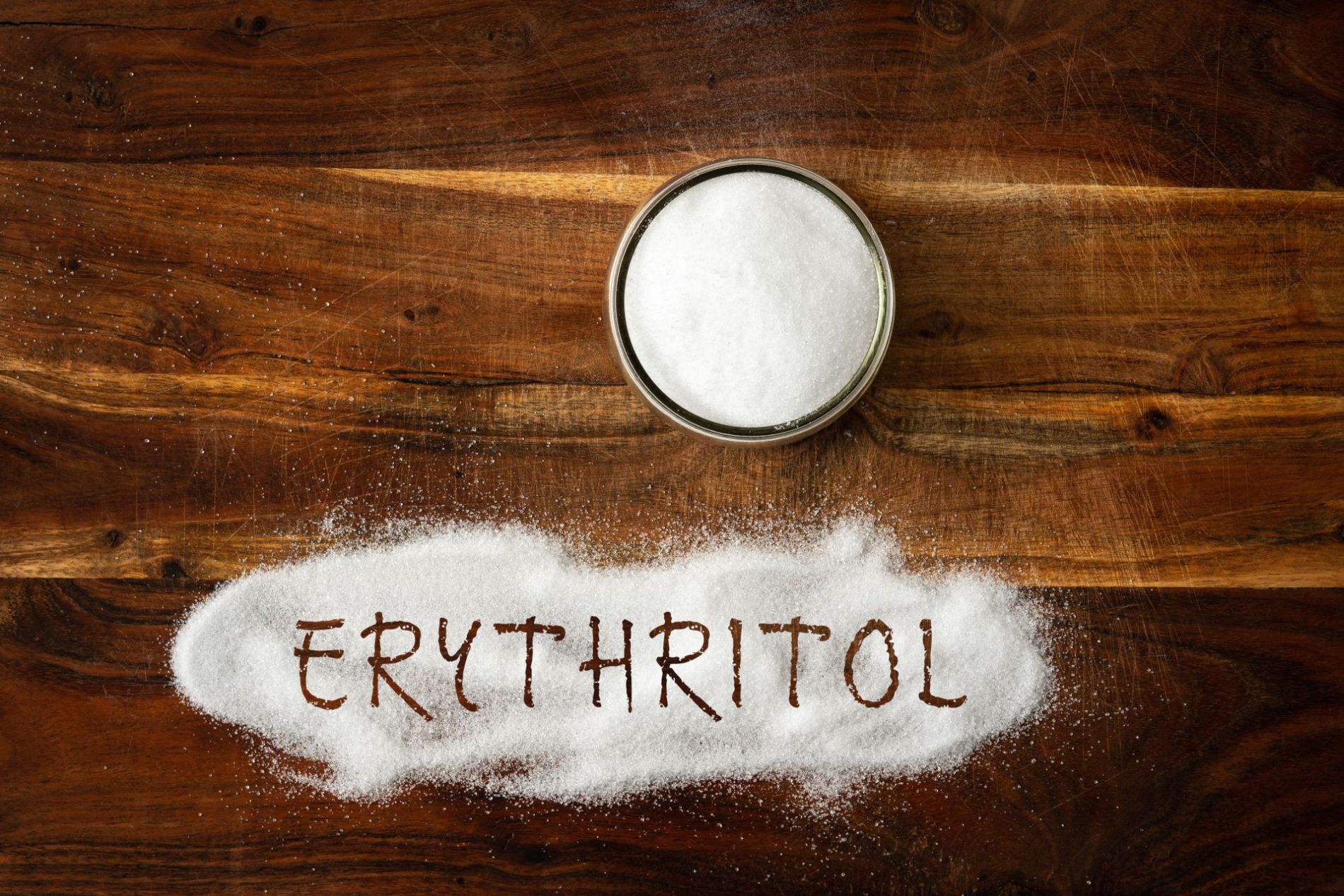
There is no doubt that people who regularly engage in sports need larger amounts of protein than those with a sedentary lifestyle. It is well known that protein is an important ingredient in the diet of a physically active person, which is why a sizable number of people just beginning their adventure with strength training often wonder what protein to choose to start with. So let's check out why protein is such an important part of an athlete's diet, what amounts of protein will be appropriate and what protein sources are worth reaching for.
- Protein - what role does it play in the diet of a physically active person?
- How much protein does a sports person need?
- Recommended protein sources for people training at the gym
- Protein conditioner - who will benefit the most?
- What protein to choose at the beginning of the adventure with sports?
Protein - what role does it play in the diet of a physically active person?
Adequate protein intake for all people who regularly train several times a week at the gym is one of the most important factors positively influencing post-workout recovery, increase in strength and muscle mass, as well as body composition and appearance of the figure. Protein is responsible for skeletal muscle remodeling, repairing damaged tissues, reducing symptoms of exercise-induced muscle damage and structural changes in tendons and bones. In addition, protein is a macronutrient that has a significant effect on the sense of postprandial satiety, so it significantly helps in the long-term maintenance of a reduction diet with a negative caloric balance. The concentration of satiety hormones is increased especially after meals with at least 25-30 g of protein. The results of the study show that a high-protein reduction diet with about 1.6 g of protein for each kg of total body weight per day not only increases satiety after meals, but also results in greater loss of body weight and fat mass and promotes the preservation of muscle mass during the fat reduction period. So, as you can clearly see, adequate protein intake in the diet of a person who regularly strength trains has a major impact on achieving the figure and sports results you dream of.
How much protein does a sports person need?
We already know that every sports person should take care of an adequate supply of dietary protein, and now it's time to find out how much protein you actually need to eat to get the results you want. People who usually perform endurance exercise several times a week (including running, swimming, cycling, fast walking, Nordic walking, dancing) and/or endurance-endurance exercise (such as soccer, volleyball, basketball, tennis, combat sports) should consume 1.2 to 1.7 grams of protein per kg of total body weight every day. On the other hand, all regular strength-trainers with a focus on muscle mass and strength development and body composition recomposition should provide 1.6 to 2.2 g of protein per kg of total body weight each day to achieve the desired benefits. In order to meet the recommended daily protein requirement of about 2.0 g for each kg of total body weight, a minimum of four meals per day should be eaten every three to four hours, with each meal containing 30-40 g of protein per serving. It is important that one meal containing about 40 g of protein be eaten no later than two hours after the end of strength training, and another with the same protein content about two hours before bedtime. This will significantly speed up the post-workout recovery process and intensify muscle protein synthesis.
Recommended protein sources for people training at the gym
We already know the daily protein requirements of people who go to the gym several times a week and perform weight training. Let's see what sources of dietary protein will be suitable for weight training and whether it's worth reaching for protein supplements. Good sources of protein with a favorable amino acid composition are such foods as fish and seafood (including salmon, Atlantic mackerel, rainbow trout, cod, pikeperch, tilapia, sole, pollock), lean meats (especially skinless chicken and turkey breast, lean beef and veal), lean and semi-skim cottage cheese, cottage cheese, high-protein natural yogurts (e.g. Skyr), milk, kefir, reduced-fat cheeses (e.g., mozzarella light), eggs, pulses (e.g., lentils, soybeans, chickpeas, peas, beans), nuts, seeds, seeds and good quality soy beverage. For those who work out at the gym and at the same time live a hectic life, good quality protein supplements can also prove useful to meet increased protein needs. However, it's worth knowing which protein to choose to start with, but we'll get to that in a moment.
Protein conditioner - who will benefit the most?
There is no denying that the primary source of protein for all physically active people is a well-composed and varied diet. And protein supplements can only be a valuable supplement to a well-balanced diet, which, on the one hand, provides the opportunity to quickly prepare a meal in the post-workout period, and on the other, helps cover daily protein requirements. Protein conditioner will be great especially for those people who regularly train at the gym, who have great difficulty in providing an adequate amount of protein from food sources, that is, about 2.0 g for each kg of total body weight per day. Difficulties with eating enough protein from food often affect very thin people, mostly underweight and living under a lot of stress, who have problems with their appetite and with eating regularly throughout the day. In addition, problems with meeting the increased protein requirements of gym-goers can result from health problems (e.g., allergies or food intolerances), adherence to a special diet that eliminates many foods that are a good source of protein (e.g., a vegan diet, a fruit and vegetable diet), and an excess of responsibilities and lack of time to prepare and eat several meals during the day.
What protein to choose at the beginning of the adventure with sports?
A sizable number of newcomers just starting regular strength training often wonder what protein to choose at the beginning in order to build great strength and muscle mass and achieve their dream physique goals. For the vast majority of people, whey protein-based supplements such as Whey Protein Concentrate (WPC) and Whey Protein Isolate (WPI) will work perfectly. Those suffering from milk protein allergy, on the other hand, should choose whey protein hydrolysate (WPH - Hydrolysed Whey Protein) or a plant-based protein supplement (such as soy protein isolate or pea protein isolate), which will not cause an allergic reaction. And those with symptoms of irritable bowel syndrome (e.g., abdominal pain, bloating, excessive gas, diarrhea and/or constipation) should choose a protein in the form of whey protein isolate (WPI) to start with, which is a safe option due to its minimal content of milk sugar (lactose), categorized as an easily fermentable ingredient in the FODMAP group. On the other hand, those who regularly train at the gym and consistently adhere to an all-plant diet (e.g., vegan), who may actually find it very difficult to get enough protein from food sources, should choose protein in the form of soy protein isolate and/or pea protein isolate. The right choice of a good-quality plant-based protein supplement will undoubtedly help realize the increased protein requirements during the period of building muscle mass and strength in all vegans. It is already known what protein to choose at the beginning of your adventure with the gym, and at the very end it is worth emphasizing that the most convenient time to consume protein nutrition is the post-workout period, and especially the first two hours after the end of exercise. A protein shake, for example, combined with fresh fruit, such as banana, kiwi, mango or berries, will be excellent at that time.
Sources:
- Leidy HJ, Clifton PM, Astrup A, et al: The role of protein in weight loss and maintenance. Am J Clin Nutr. 2015 Jun;101(6):1320S-1329S.
- Kerksick CM, Arent S, Schoenfeld BJ, et al: International society of sports nutrition position stand: nutrient timing. J Int Soc Sports Nutr. 2017 Aug 29;14:33.
- Jäger R, Kerksick CM, Campbell BI, et al: International Society of Sports Nutrition Position Stand: protein and exercise. J Int Soc Sports Nutr. 2017 Jun 20;14:20.
- Morton RW, Murphy KT, McKellar SR, et al: A systematic review, meta-analysis and meta-regression of the effect of protein supplementation on resistance training-induced gains in muscle mass and strength in healthy adults. Br J Sports Med. 2018 Mar;52(6):376-384.
- Schoenfeld BJ, Aragon AA: How much protein can the body use in a single meal for muscle-building? Implications for daily protein distribution. J Int Soc Sports Nutr. 2018 Feb 27;15:10.
- Tagawa R, Watanabe D, Ito K, et al: Dose-response relationship between protein intake and muscle mass increase: a systematic review and meta-analysis of randomized controlled trials. Nutr Rev. 2020 Nov 4;79(1):66-75.
 ⮜ Previous article
⮜ Previous article
Vegan diet - this is what you need to remember
 Next article ⮞
Next article ⮞